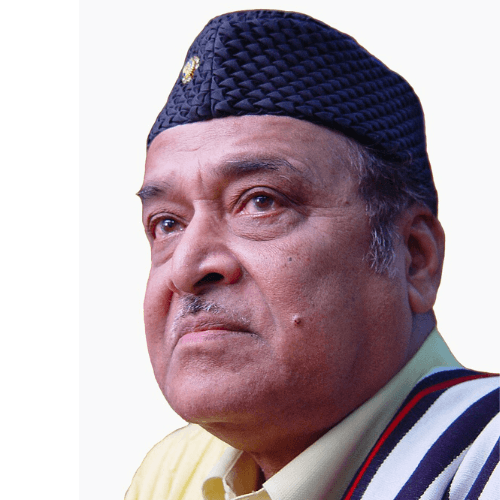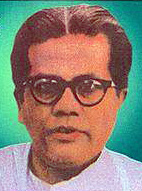Early Life and Education
Bhupen Hazarika was born on September 8, 1926, in Sadiya, Assam. From a young age, he displayed immense talent in music, writing, and performing. By the age of 10, he had already composed and sung his first song in Jyoti Prasad Agarwala‘s Assamese film, Joymoti. At just 12 years old, he lent his voice to the song Biswa Bijoy No Jowan in the Assamese movie Indramalati in 1939.
He completed his early education at Cotton College, where he passed his Intermediate Arts in 1942. He then pursued his Bachelor’s degree from Banaras Hindu University (BHU) in 1944 and completed his Master’s degree in Political Science in 1946. Later, he went to the United States, earning a Ph.D. in Mass Communication from Columbia University in 1954. His research focused on utilizing audio-visual techniques in adult education, demonstrating his visionary approach to mass communication.
Musical and Cinematic Excellence
Bhupen Hazarika’s musical genius was unparalleled. His songs carried deep emotions, addressing social issues, love, patriotism, and unity. He was instrumental in popularizing Assamese music on a global stage. His powerful compositions often depicted themes of human struggle, unity, and resilience. His ability to integrate folk traditions into modern music made his songs timeless.
In cinema, he played a pivotal role in elevating Assamese films to national and international recognition. As a director, lyricist, and music composer, he was responsible for some of the finest Assamese Films. He was not just a music director but also a filmmaker who brought the rich culture of Northeast India into the limelight. His efforts helped integrate tribal culture into mainstream Indian cinema, making him a cultural ambassador of Assam.
Political and Social Contributions
Apart from being a musician and filmmaker, Bhupen Hazarika was deeply involved in social and political issues. He served as an Independent Member of the Assam Legislative Assembly from 1967 to 1972. His contribution to the development of Assamese cinema was remarkable, as he played a crucial role in establishing Assam’s first state-owned film studio. Through his music and work, he aimed to bring social change and encourage unity among different communities.
Awards and Achievements
Bhupen Hazarika received numerous accolades for his immense contributions to music and cinema. In 1977, he was honored with the Padma Shri for his work in Indian culture. He won multiple awards in India and abroad for his compositions in films. In 1993, he was awarded the prestigious Dadasaheb Phalke Award for his lifetime contribution to Indian cinema. In 2001, the Government of India honored him with the Padma Bhushan for his exceptional service in the field of arts.
Apart from these, he was also recognized internationally. In 1993, he became the first Indian music director to win an award at the Asia Pacific International Film Festival in Japan. In 1999, he was appointed as the Chairman of the Sangeet Natak Akademi, India’s national academy for music, dance, and drama.
The Final Chapter: A Nation Mourns
Bhupen Hazarika passed away on November 5, 2011, in Mumbai due to multiple organ failure. His funeral became one of the most attended funerals in history. Over 500,000 people paid their last respects, and nearly 30 million people watched the event on television. His cremation at Jalukbari, Guwahati, marked the end of an era, but his legacy continues to inspire generations.
Legacy of Bhupen Hazarika
Bhupen Hazarika’s contribution to Indian music and cinema remains unparalleled. He was a true artist, a visionary, and a cultural icon whose work transcended regional boundaries. His songs continue to inspire millions, and his influence on Assamese and Indian music is everlasting. His deep understanding of human emotions, struggles, and aspirations made his work universally relatable. Today, he is remembered not only as the Bard of Brahmaputra but as one of the greatest cultural icons of India. His music and legacy will live on forever, resonating with every soul that listens to his melodies.












